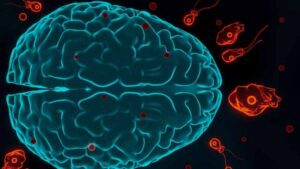
Stock Image
Poor blood circulation can have serious consequences for your heart and overall health. It is crucial to recognize the warning signs early to prevent complications. Many people are unaware of how poor circulation can silently impact their well-being, but being vigilant about the symptoms and taking action could make all the difference.
Signs of Poor Circulation
One of the most common indicators of poor circulation is discomfort in your legs and feet. “Pain, tingling, and cramps in your legs and feet are common indicators of poor blood circulation,” warn health experts. These symptoms should not be ignored, as they could signal underlying cardiovascular issues. While occasional discomfort may not seem alarming, persistent symptoms warrant attention, as they can develop into more serious health concerns like heart disease or stroke if left untreated. According to Apexlifehub.
Why Early Recognition is Key
Identifying poor circulation early on is vital. It allows you to take proactive steps to improve blood flow before more significant health problems arise. Addressing the issue at its root can help you avoid conditions like peripheral artery disease or deep vein thrombosis, both of which are associated with reduced blood flow. Experts stress that “by seeking medical advice at the first sign of discomfort, you can avoid the risks associated with poor blood flow.” Early diagnosis and treatment can significantly reduce the likelihood of long-term complications.
Preventive Measures
Fortunately, there are several ways to improve circulation and protect your heart health. Regular exercise, such as walking, swimming, or cycling, can significantly enhance blood flow. A heart-healthy diet rich in fruits, vegetables, whole grains, and lean proteins can also help keep your arteries clear. Additionally, avoiding habits that impair circulation, such as smoking and prolonged sitting, is essential for maintaining good cardiovascular health. Even small lifestyle adjustments can result in a noticeable improvement in circulation and overall well-being.
Consult a Professional
If you continue to experience symptoms of poor circulation, it is important to consult a healthcare provider. A professional can assess your condition and recommend appropriate treatment, whether through medication, lifestyle changes, or other therapies to address the underlying cause of your poor blood flow. Ignoring these signs can lead to more severe consequences, so timely medical intervention is critical. report from Cleveland Clinic.
Conclusion
Good circulation is essential for maintaining a healthy heart and preventing future complications. Don’t underestimate the importance of recognizing the signs early. “Your heart is your most vital organ—take care of it” by staying vigilant, adopting healthy habits, and seeking professional advice if you experience symptoms. Early action can help safeguard your health and reduce the risks of poor blood circulation.


